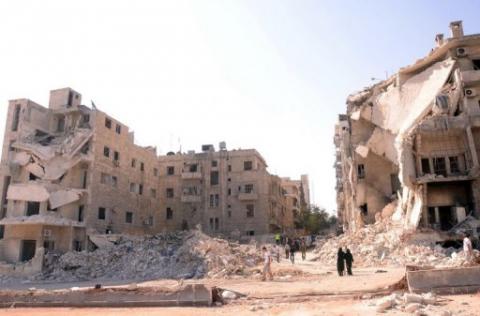CAIRO: The United Nations Conference on Trade and Development (UNCTAD) urged developing-market policymakers and business leaders to focus on luring foreign cash to traditionally low-margin but nevertheless crucial infrastructure sectors – such as electricity and water distribution – in its annual World Investment Report on Tuesday.
At a time when liberalization is rife throughout most emerging economies, growth hinges increasingly on private sector profits, the report noted. Because reliable and efficient communications, transport, electricity supply and water management are vital to subduing poverty and fostering a nations’ economic prowess, private profits should be encouraged in these fields as well, the conference counseled.
Since the 90s, when dwindling budgets spurred many countries to encourage foreign investment, total investment in developing-world infrastructure has risen 29-fold to reach nearly $200 billion in 2006, the conference reported.
“However, the authors cautioned, “despite these significant levels, more is required: the financing gap in the sector remains vast.
Infrastructure is a broad category, and most of the investment mentioned has gone specifically to telecommunications and transport, which tend to make the most money, leaving water and electricity distribution behind, the report noted.
Full privatization efforts have mixed results, the conference stated. The important thing to remember is that there is no one-size-fits-all template.
Though the Egyptian government is trying to diversify where foreign cash goes, most of it still ends up in oil, said Magda Shahin, director of the Trade-Related Assistance Center at the American Chamber of Commerce.
The government is really looking for FDI [foreign direct investment] in transport, she said. Helping revamp the train system or Egypt s many ports, for instance, could prove alluring to foreign companies, she said.
It is far more difficult to draw investors to water and electricity, she said. A few countries, notably Argentina and Bolivia, launched private investment projects in water management only to shutter them when it became clear profits were too low, Shahin said.
Though a private participation law in water management was passed in Egypt in 2000, no contracts have yet been signed, according to the UNCTAD report.
Foreign and private firms entries into infrastructure sectors have boosted competition, and thus efficiency, most notably in the fields of mobile phones and electricity generation, the UNCTAD report said.
However, in some cases TNC [transnational corporation] entry may be associated with significant market power and crowding out effects, the report read. In industries that are still natural monopolies, such as water supply, the entry of TNCs through privatization or concessions often results in State monopolies being turned into foreign private ones, so that efficiency gains from competition are limited.
In the area of inward FDI performance, which measure the amount of investment a country receives relative to the size of its economy, Egypt leapfrogged from 31st place in 2006 to 20th last year. But this also thrust the Arab Republic into the above potential category, suggesting its performance is outpacing real potential.
Investment outflows from Egypt totaled $665 million in 2007. Notably, Orascom Telecom landed a contract to sell mobile phone services in North Korea, which had previously banned FDI.
The report ranked Orascom as the 58th largest infrastructure-related transnational company, and 12th largest among developing nations.
Bilateral investment treaties, which set rules for investment between two partners, have also shot up in recent years, reflecting a trend of improving South-South cooperation – particularly with China. Egypt signed about 100 such treaties last year, the fifth most of any nation.
Overall, foreign investment in Africa hit a record $53 billion last year, with $22 billion concentrated in North Africa. Egypt, whose share accounted for nearly $12 billion – up 15 percent from 2006 – garnered the second-most on the continent after Nigeria.
Textiles, oil, chemicals and generic medicines accounted for most of the investment in Egypt, the report said.
Though Egypt s economic policies have earned generally upbeat reviews from the developed world since it embarked on a campaign of liberal reforms in 2004, the results have sometimes been mixed.
Last year the World Bank named Egypt its top reformer, but the nation also slid to 77 in the World Economic Forum s global competitiveness rankings, down 25 places since 2006. According to that ranking, Egypt was hamstrung largely by an inefficient – though large – labor force.


